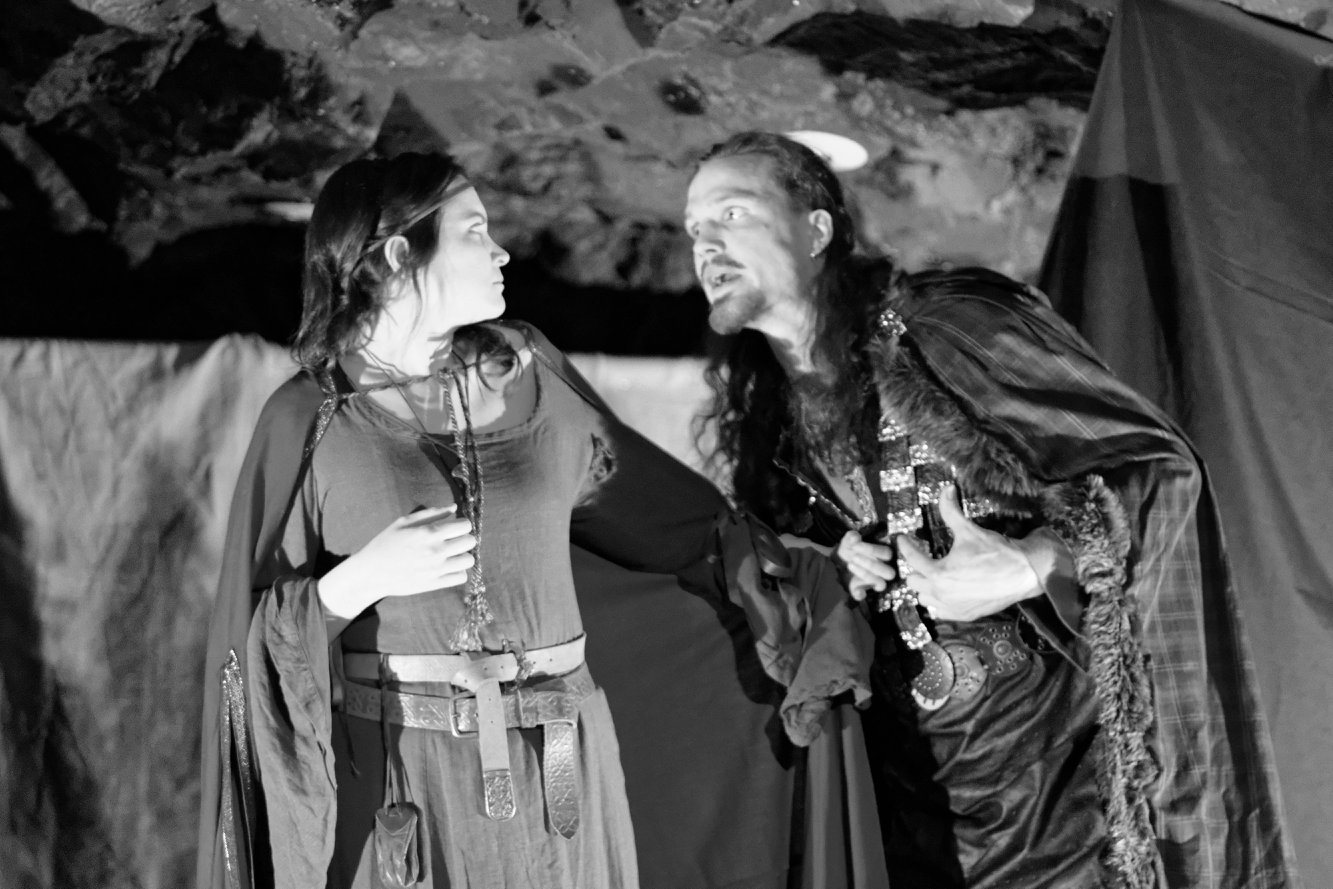Is this a dagger I see before me?
30th March 2018

“Is this a dagger I see before me?
Macbeth, thought to be written in around 1606, is one of the most well-known and darkest of Shakespeare’s tragedies. Consisting of 5 acts, 21 scenes and 17121 words, it is actually one of his shortest plays as well, and is almost half the length of Hamlet. In terms of frequency of performance it is one of the most popular of Shakespeare’s plays, so a vast number of brilliant actors have taken on the role of Macbeth, but the first to ever perform the role is thought to be Richard Burbage. Women were not permitted to act at this time so all roles were played by men. It is rumoured that shortly before an early performance the boy playing Lady Macbeth died and the Bard himself stepped in to take on the role!

The title character of Macbeth was based on a real 11th century Scottish King, but the resemblance ends here. Shakespeare depicts Macbeth’s rule as short and bloody, yet the real Macbeth ruled Scotland peacefully for 17 years (1040-1057) and is even described as ‘the generous king’. It is likely that Shakespeare chose to turn Macbeth into a monster who was eventually punished for his tyranny in order to appeal to King James I. Shakespeare was undoubtedly influenced by the foiling of the infamous gunpowder plot in November 1605. Macbeth’s tragic end served as a warning to anyone considering an attack on the King’s life. A play about a usurper who killed the rightful king then ruled successfully probably wouldn’t have gone down too well given this context…

Several other aspects of Macbeth can also be interpreted as aiming to flatter King James. For instance, Shakespeare deliberately talked up the character of Banquo as King James claimed decadency from him. He is presented as wise and noble and a loyal subject of the rightful King, characteristics that arouse jealousy in Macbeth. Furthermore, when he and Macbeth come across the three witches they predict that Banquo will sire Kings even though he himself will not become one.
Additionally, the three witches themselves were almost certainly included to please King James, who had somewhat of an obsession with them. He had instigated mass witch hunts in Scotland, apparently paranoid that witches has instigated an assassination attempt, and even penned his own book about witchcraft entitled ‘Daemonologie’.

Throughout the play the three witches are referred to as ‘the weird sisters’, and if you’re a bit of a Harry Potter buff, you’ll recognise this as the name of the band who played at the Yule ball in The Goblet of Fire! However, Shakespeare did not intend to describe the three witches as strange or bizarre. The term ‘weird’ actually refers to their ability to predict the future, as it is developed from the anglo-saxon word ‘wyrd’, meaning fate or destiny.

Many people are aware that you should NEVER utter the name Macbeth in a theatre before the night of a performance or risk getting bad luck; it is hence referred to simply as ‘the Scottish play’ by many actors. However the origins of this superstition are unclear. One theory is that Shakespeare himself cursed the play after discovering that King James did not enjoy it. Conversely, another theory suggests that Shakespeare used lines of spells from a real coven of witches and they cursed the play. A final theory speculates that the superstition began due to an accidental death during an early performance. Supposedly, performing a ritual can help to ward off this bad luck, one should walk three times in a circle anti clockwise, spit, then shout a curse word!
Hopefully this has provided an informative and entertaining insight into the context of Macbeth and taught you something new. We look forward to seeing you at this evening’s performance and hope you enjoy the show! To round off, here’s a piece of useless trivia; Macbeth is the only one of Shakespeare’s plays to include the word Rhinoceros!

